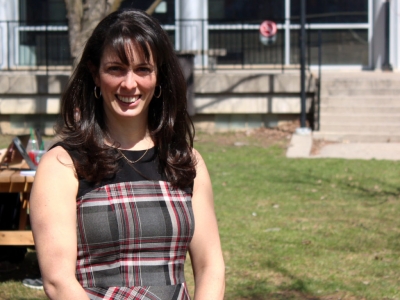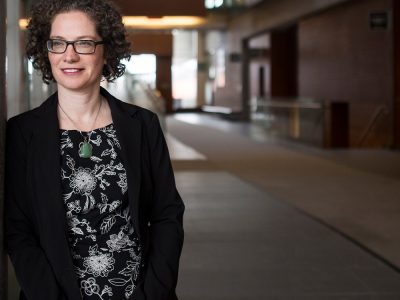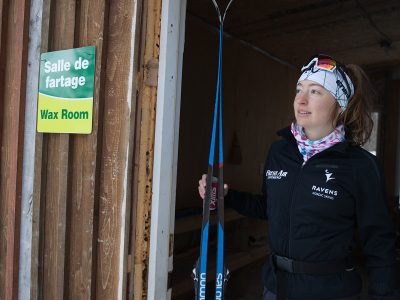By Joseph Mathieu
It is widely accepted, especially by pet owners, that pet ownership can make you feel better.
On top of anecdotal evidence, there is scientific research demonstrating that companion pets can reduce stress and anxiety, and lower your heart rate and blood pressure, offering physical, mental and social health benefits.
Studies also show the benefits are mutual: pets of all kinds—from dogs and cats to birds and small beasts—can also feel a sense of comfort and security from their companion human.
However, it can be a challenge for people who are elderly, disabled, homeless or victims of domestic abuse to care for a pet, especially in an inner-city environment – the very people who could benefit the most from companion pets.
On Nov. 22, 2019, six teams of four to six Carleton University undergraduate students tackled the complex issue for the third annual One HEALtH (Human Environment Animal Links to Health) Student Challenge. They presented interdisciplinary strategies developed over six weeks to a panel of judges in the MacOdrum Library’s Discovery Centre.
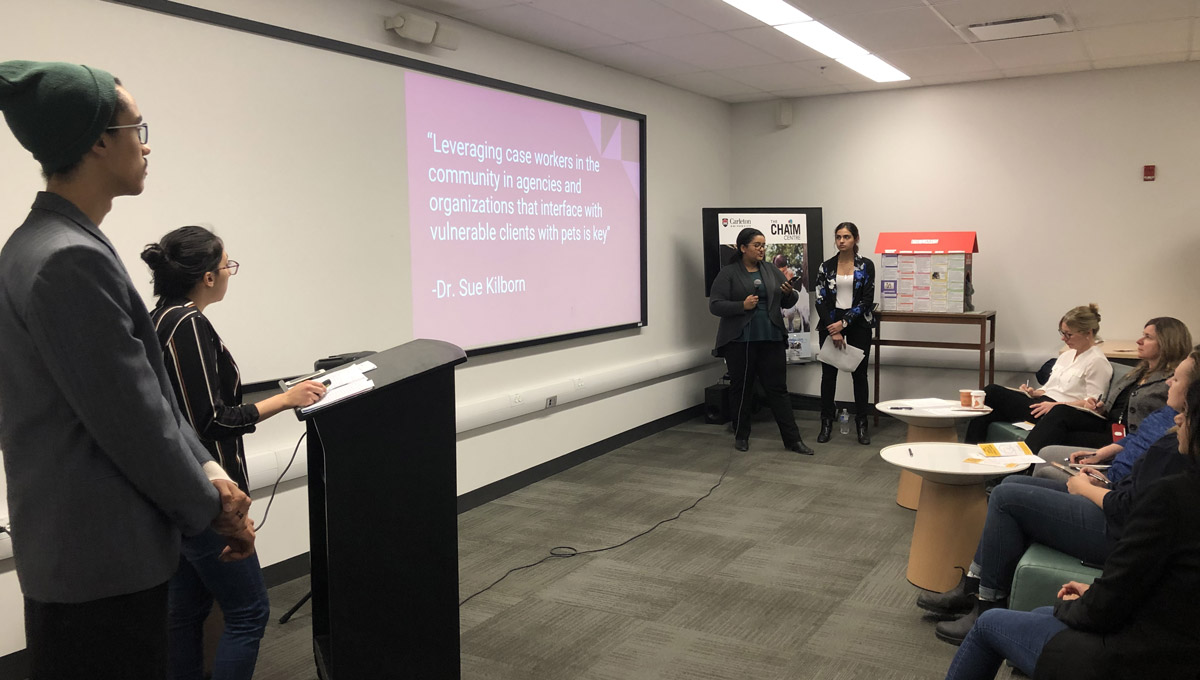
Acknowledging the Benefits of Pet Ownership for Marginalized Communities
Organized by Carleton’s Canadian Health Adaptations, Innovations and Mobilization (CHAIM), the challenge brought together students from a wide variety of disciplines. By consulting with local experts, students considered how to plan for socially marginalized groups to benefit from companion pets in the inner city.
“The relationship between people and their pets is an important one to Canadians,” said Prof. Kim Matheson, director of the CHAIM Centre and Department of Neuroscience. “They play a vital role as companions and sources of connection.”
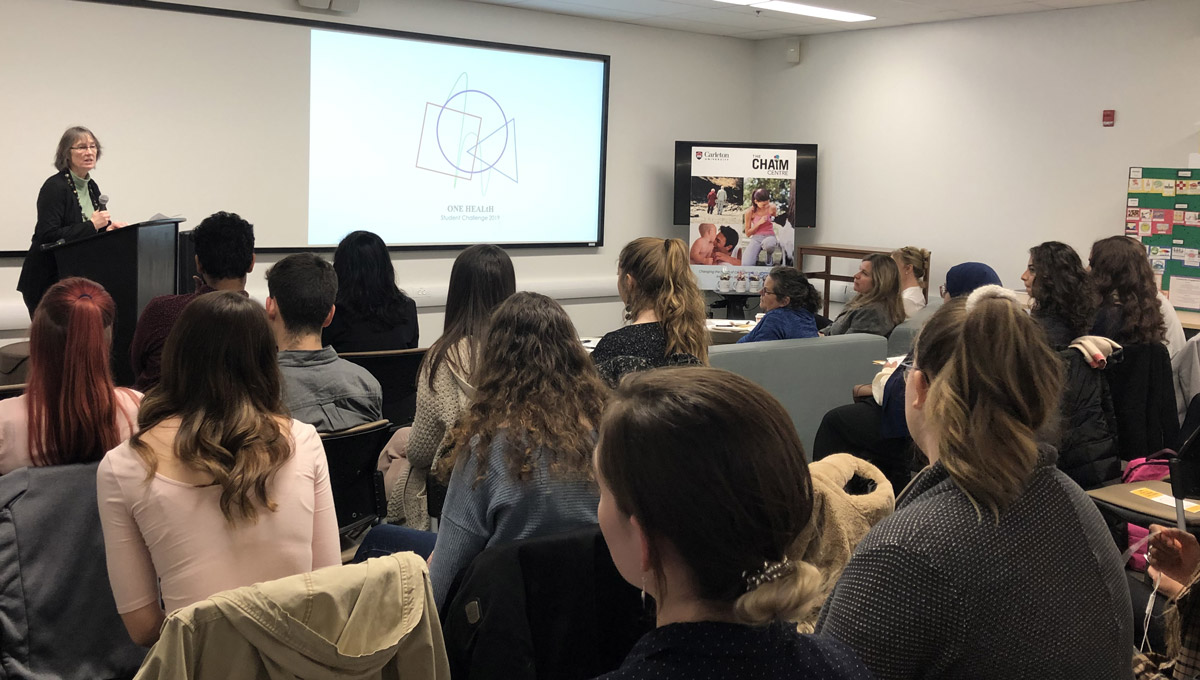
Prof. Kim Matheson
A lack of walking space, rules against animals in housing or on public transit, and societal stigmas—such as who does and doesn’t “deserve” to have a pet—have made pet ownership very difficult for certain urban communities. To promote healthy human-pet interactions in Ottawa’s inner-city environment, the students developed strategies to reduce barriers and develop programs for marginalized groups with companion pets.
One Health emphasizes the link between human, animal and environmental health. It is a concept that encourages a broad, interdisciplinary approach to solve complicated health problems and ultimately improve the well-being of people, animals and the environment.
Each team was paired with a graduate student mentor and had access to a roster of faculty and partner organization experts. These advisers were experts in disciplines ranging from neuroscience, health sciences and psychology to geography, social work and political science.
Outside agencies that gave the students insight into their programs and processes included the City of Ottawa, Ottawa Public Health and the Community Veterinary Outreach, which provides free veterinary care for low-income, marginally housed community members in Ottawa.
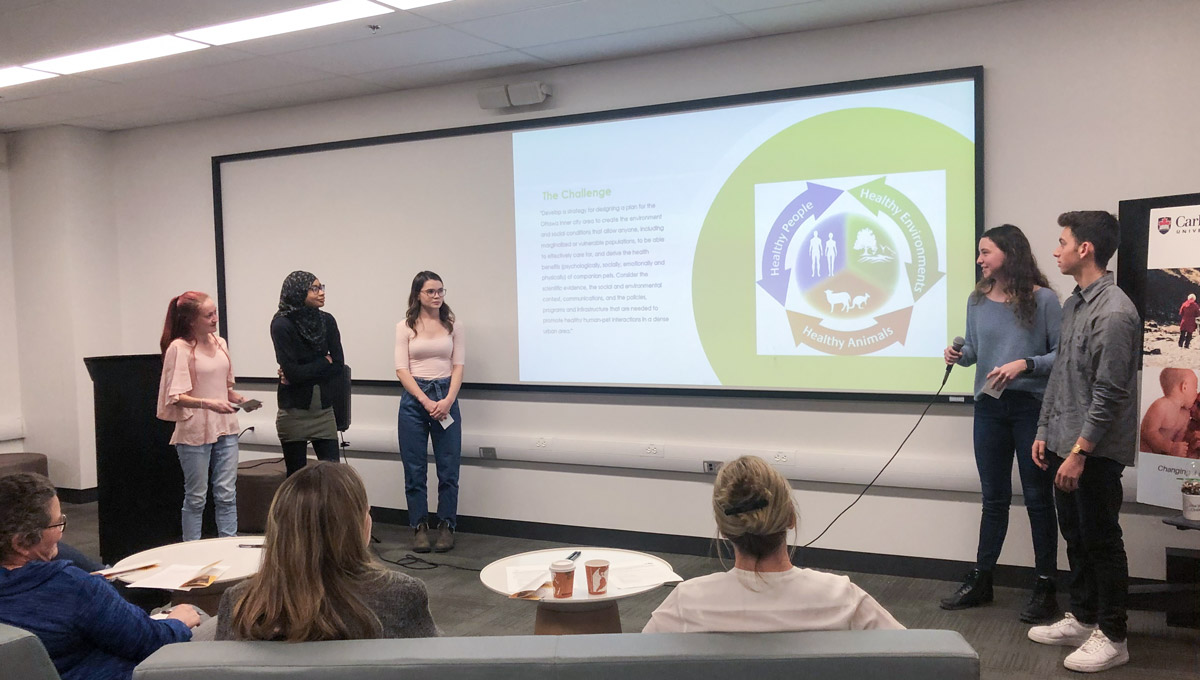
Considering Policy Change, Integrated Health Care and Training Programs
After student presentations, the challenge’s judges toured the room to examine research posters. This year’s judges were Sherry Beadle, manager of the Environment, Health Protection branch at Ottawa Public Health; Sharon Miko, the Ottawa Humane Society‘s director of operations; Wendy Muckle, executive director of Ottawa Inner City Health; and Shannon Noonan, special projects officer at Carleton’s Office of the Vice-President (Students & Enrolment).
The winning group’s project, called The Dogwalkers, was created by Psychology student Sierra Longpre, Neuroscience and Mental Health student, Melissa Carvahlo, Public Affairs and Policy Management student. Mary Catharine Dorscht, and Biochemistry student James Singh. Their graduate mentor was Health Sciences master’s student Sam Petrie.
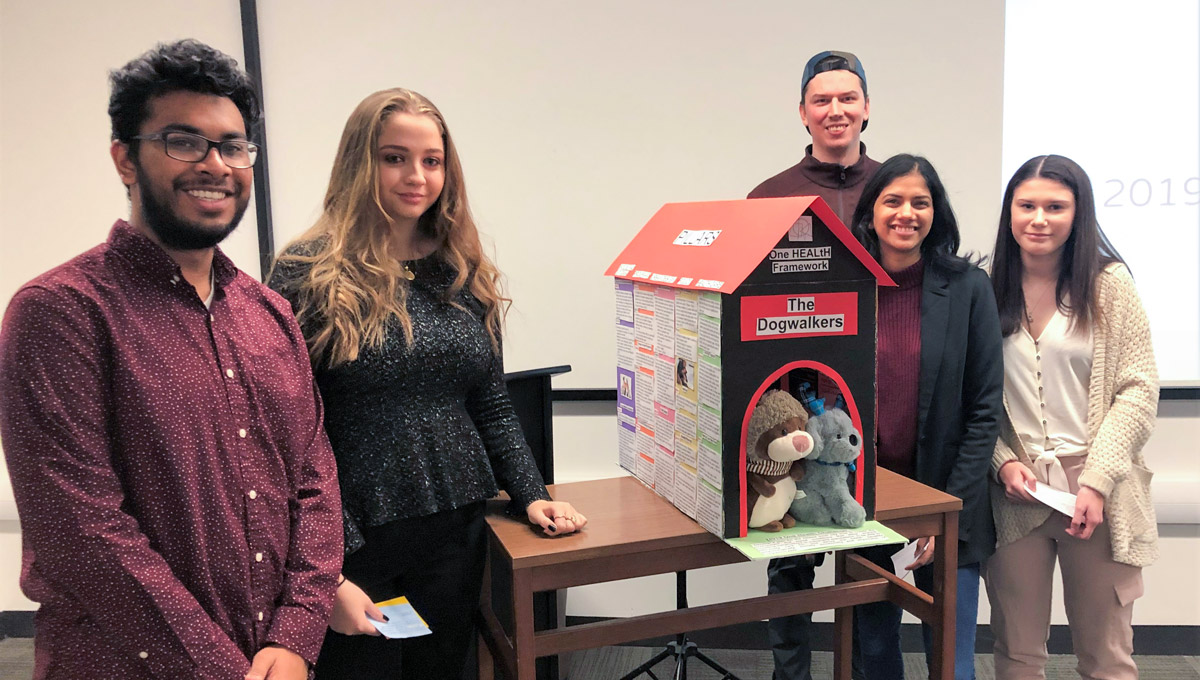
The Dogwalkers
The Dogwalkers strategy was comprehensive, with short- and long-term goals. It outlined a plan to alleviate societal stigma around marginalized populations having companion pets and to engage the public about the benefits using social media. They also considered public transportation policy changes, design and locations of urban parks, integrated health-care programs for pets and people, and training programs of all kinds for marginalized pet owners.
Each member of the winning team will receive a paid internship under the supervision of a faculty researcher in their discipline.
Following the event, Matheson, Dorscht and Safira Teja, a Public Affairs and Policy Management student from another team, spoke on CBC Radio One’s All in a Day. Host Alan Neal asked how possible these strategies could be in the real world.
“It’s 100 per cent possible,” said Dorscht. “Once people realize the benefits [companion pets] have, I see it taking off and becoming a mainstream part of our lives.”
Tuesday, November 26, 2019 in Faculty of Science
Share: Twitter, Facebook
